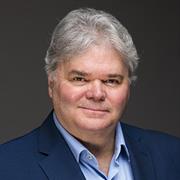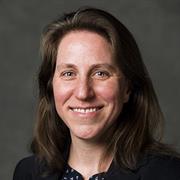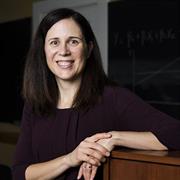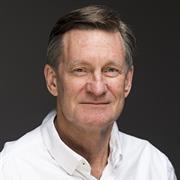Economics - Neubauer Family Program in Economics and Public Policy
Spring: n/a
Summer: n/a
Overview
Jointly offered by the Tufts Department of Economics and The Fletcher School, the Neubauer Family Program in Economics and Public Policy draws on the expertise of faculty whose research focuses on key issues in economic development, energy, and environmental policy.
The program trains scholars and policymakers to address the sustainability of economic development and growth—one of the central policy challenges of our time—through rigorous training in statistics, microeconomics, and macroeconomics, with concentrations in development, energy and the environment, or both.
Program Outcomes
Our faculty is dedicated to training students to address critical issues centered on economic development and the environmental as well as climate consequences of development. The program blends training in microeconomics, macroeconomics, and econometrics with an understanding of institutional detail and political economy, giving students the tools necessary to address questions in economic development, energy, and environmental policy within an interdisciplinary framework that is needed for policy effectiveness. We seek candidates with an interest in applied economics, focused on issues related to the environment, development, and political economy. A background in economics coursework is essential, and experience with applied research on one of the focal topics is an asset. We encourage applications from students interested in pursuing both academic and policy jobs following graduation.
Training in this program includes research assistantships, teaching, mandatory seminar attendance, and a second-year paper course. The Neubauer Family Program in Economics and Public Policy aims to produce graduates who bring the most rigorous tools of economics to bear on critical public policy questions.
Application Requirements
- Application Fee
- Resume/CV
- Personal Statement
- Writing Sample
- Official TOEFL, IELTS, or Duolingo English Test, if applicable
- Transcripts
- Three Letters of Recommendation
Tuition and Financial Aid
Thanks to generous support from the Neubauer Family Foundation, our doctoral students receive five years of funding contingent on satisfactory performance. The funding covers tuition, a stipend, and health insurance. In some cases, graduate level coursework in economics may be accepted for credit enabling students to complete the program in a shorter period. Apart from coursework, program training includes research assistantships, teaching, mandatory seminar attendance and a second-year paper course. We aim to produce graduates who bring the most rigorous tools of economics to bear on critical public policy questions.
See Tuition and Financial Aid information for GSAS Programs for additional information.
Fields
You will work with Economics faculty trained in the technical modeling and empirical research techniques essential for accurate policy analysis and formulation, and social scientists with the institutional and cultural expertise necessary for developing integrated policy proposals that can be truly effective. All have experience in research and have also played prominent roles in policy making at both the federal and state levels.
The curriculum includes the core methods courses from the MA in Economics program as well as three fields of study for the joint PhD program, from which students in the joint doctoral program would each be required to select two:
-
Development Economics, or
-
Energy and Environmental Policy
You will take four classes from each field in addition to one or two core classes and electives. You will take a qualifying exam from one of these fields, offered on an annual basis.
Faculty

Margaret McMillan

Margaret McMillan
Research/Areas of Interest: International Trade and Investment, Structural Change, Industrialization, Africa

Chaewon Baek

Chaewon Baek
Research/Areas of Interest: Macroeconomics, Macro-labor, Macroeconometrics

Marcelo Bianconi

Marcelo Bianconi
Research/Areas of Interest: Applied and Theoretical Economic Models and Empirics

Steven Block

Steven Block
Research/Areas of Interest: -Agricultural development -Economic growth -Political economy -Development economics, particularly food and agricultural policy, growth, and political economy

Drusilla Brown

Drusilla Brown
Research/Areas of Interest: Applied General Equilibrium Models, International Trade Policy, International Labor Standards, Child Labor

Steve Cicala

Steve Cicala
Research/Areas of Interest: Energy and Environmental Economics, Industrial Organization

Ujjayant Chakravorty

Ujjayant Chakravorty
Research/Areas of Interest: Resource and Environmental Economics, Energy and Development, Water

Mary Davis

Mary Davis
Research/Areas of Interest: Labor economics, public health, nursing

Cheryl Doss

Cheryl Doss
Research/Areas of Interest: Development Economics, Agricultural Economics, Asset Ownership

Thomas Downes

Thomas Downes
Research/Areas of Interest: Public Educational Finance and School Choice

Kyle Emerick

Kyle Emerick
Research/Areas of Interest: Development Economics, Agricultural Economics

Federico Esposito

Federico Esposito
Research/Areas of Interest: International Trade, International Finance

Silke Forbes

Silke Forbes
Research/Areas of Interest: Industrial Organization, Antitrust, Strategy, Organizational Economics

Laura Gee

Laura Gee
Research/Areas of Interest: Behavioral / Experimental Economics, Labor Economics, Public Economics, Diversity/Discrimination

Douglas Gollin

Douglas Gollin
Research/Areas of Interest: Economic Development and Growth

Matthew Gudgeon

Matthew Gudgeon
Research/Areas of Interest: Labor Economics, Public Economics, Political Economy

Maulik Jagnani

Maulik Jagnani

Cynthia Kinnan

Cynthia Kinnan
Research/Areas of Interest: Development Economics, Applied Microeconomics

Edward Kutsoati

Edward Kutsoati
Research/Areas of Interest: Applied Microeconomics

Jing Li

Jing Li

William Masters

William Masters
Research/Areas of Interest: Economics and policy analysis for agriculture, food and nutrition

Eoin McGuirk

Eoin McGuirk
Research/Areas of Interest: Political Economy, Development Economics, Applied Microeconomics

Melissa McInerney

Melissa McInerney
Research/Areas of Interest: Public Economics, Health Economics, Labor Economics, and Applied Microeconomics

Ursina Schaede

Ursina Schaede
Research/Areas of Interest: Labor Economics, Economics of Education

Elizabeth Setren

Elizabeth Setren
Research/Areas of Interest: Economics of Education, Labor Economics

Alan Finkelstein Shapiro

Alan Finkelstein Shapiro
Research/Areas of Interest: Macroeconomics, Macro-Labor, Macro-Climate, International Macroeconomics, Macro Development

Enrico Spolaore

Enrico Spolaore
Research/Areas of Interest: Political Economy, International Economics, Economic Growth and Development

Adam Storeygard

Adam Storeygard
Research/Areas of Interest: Development and Growth, Urban Economics

Jeffrey Zabel

Jeffrey Zabel
Research/Areas of Interest: Applied Urban, Housing, Education, Environmental, and Labor economics.